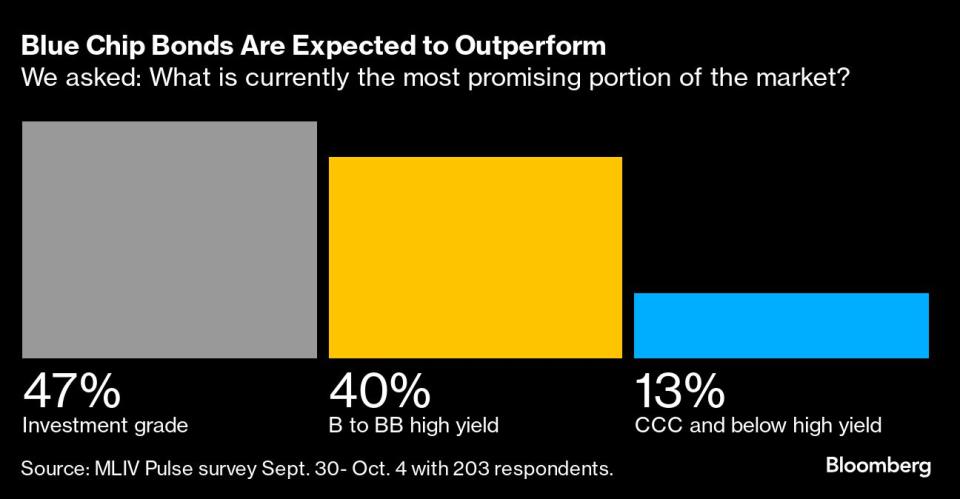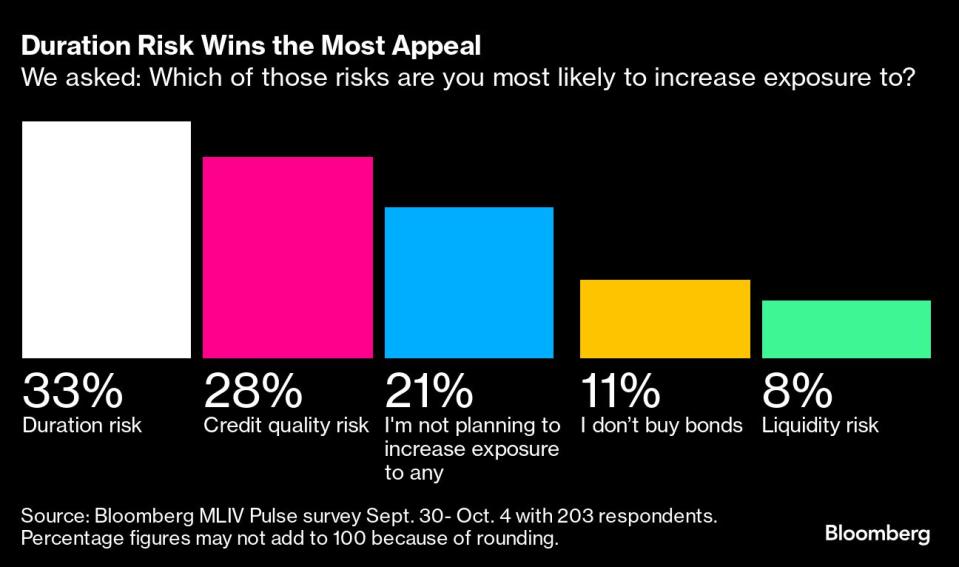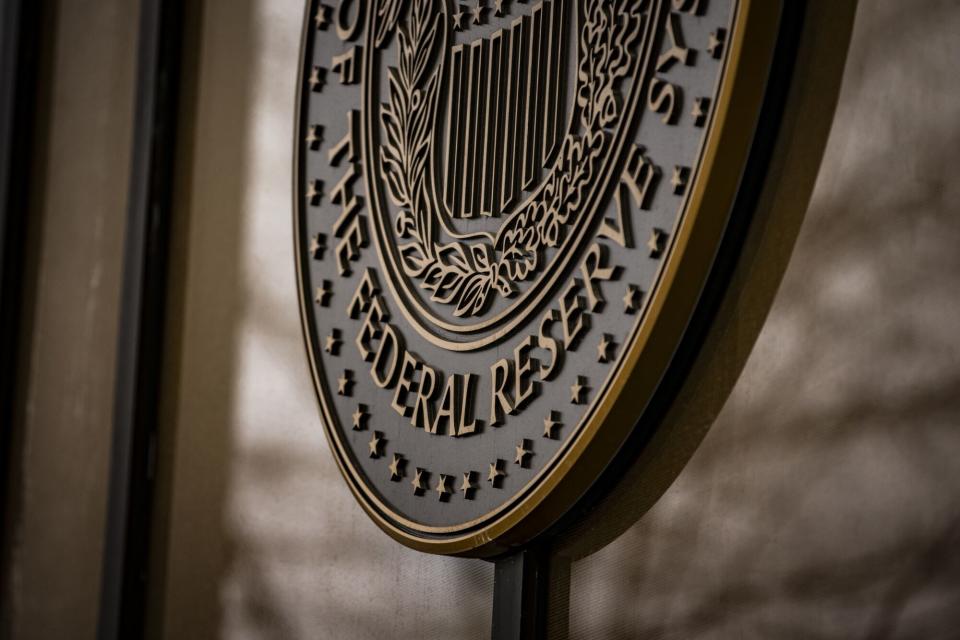(Bloomberg) — The outlook for corporate debt is improving now that the Federal Reserve has begun cutting interest rates, according to the latest Bloomberg Markets Live Pulse survey.
Most Read from Bloomberg
The asset class is becoming more attractive compared to stocks, according to 54% of 203 respondents. Within credit, investors favor high-quality bonds over riskier debt. They are also positioning to extend duration.
MLIV Pulse survey results suggest investors are growing weary of lofty valuations in the stock market and are looking to pick up returns elsewhere. Investing in high-grade bonds allows money managers to pick up extra yield and also extend duration, which reflects a bond’s sensitivity to changes in interest rates. When the benchmark rate falls, longer-duration assets like blue chips tend to outperform. The S&P 500 posted a total return of roughly 22% so far this year compared to about 4.4% for high-grade bonds.

“Lower benchmark yields raise the value of existing, higher coupon bonds, while the ability to refinance at lower rates is beneficial to balance sheets, and thus may lead to stable, if not slightly tighter credit spreads,” said Scott Kimball, chief investment officer at Loop Capital Asset Management.
At the same time, 61% of survey participants said it’s not a good time to buy commercial real estate, underscoring a hesitancy to reach too far down the risk spectrum for returns.
There are “problems galore” in US office real estate and it’s so troubled that it’s difficult to underwrite, according to Victor Khosla, the founder of credit investor Strategic Value Partners LLC. “There’s almost a tsunami coming through,” he said in an interview with Bloomberg Television last week.
MLIV Pulse participants are worried about “damaged” fundamentals, as one respondent put it. “The AI assisted workforce will be smaller even if it all returns to the office,” said another.


Respondents also didn’t see private credit in Asia as attractive. Some 65% said they didn’t see it as a growing source of opportunity.
Private credit is a niche market in the Asia Pacific region that is dominated by banks. However, the market has grown rapidly in the last four years, albeit from a low base.
Borrowers previously tapped private credit funds after being shunned by banks due to credit or reputation issues. However, global funds including Apollo Global Management Inc., Blackstone Inc. (BX), HPS Investment Partners and Muzinich & Co. are slowly stepping in to fill a funding gap for small and medium firms particularly as traditional banks pull back due to higher capital requirements and lower risk appetite.
Money Markets
Blue-chip bonds, on the other hand, are viewed as much safer and might benefit from a move in the money markets, where a record $6.46 trillion is sitting. Bond experts expect that as the benchmark interest rate continues to drop, investors will be inclined to move that cash into higher-yielding assets.
“Investors are looking to higher quality market segments to act as cash proxies,” said Winifred Cisar, global head of credit strategy at CreditSights Inc. “Historically, the US investment-grade market, especially front-end funds, has operated as one of these cash proxies.”
The dynamic is likely to support a bid for more credit-worthy bonds as the Fed embarks on its rate cutting cycle, she added. There are already signs that some of this rotation is underway, evident by strong inflows into corporate debt since the central bank cut rates in September. Investors plowed $3.8 billion into short and intermediate investment-grade bonds in the latest weekly reporting period, according to LSEG Lipper data, while $6.6 billion exited Treasury funds.


To be sure, US stocks are still expected to outperform the nation’s government and corporate bonds for the rest of this year, according to the earlier Pulse survey.
“Investment-grade is in a good place right now to continue to see inflows,” said Travis King, head of US investment-grade corporates at Voya Investment Management. “Credit fundamentals are in a good place, and you have the backstop of more Fed cuts if economic conditions worsen, which would likely lead to lower rates and positive total returns.”


The MLIV Pulse survey was conducted Sept. 30- Oct. 4 among Bloomberg News terminal and online readers worldwide who chose to engage with the survey, and included portfolio managers, economists and retail investors.
—With assistance from Sharon Klyne.
Most Read from Bloomberg Businessweek
©2024 Bloomberg L.P.
Read the full article here
















